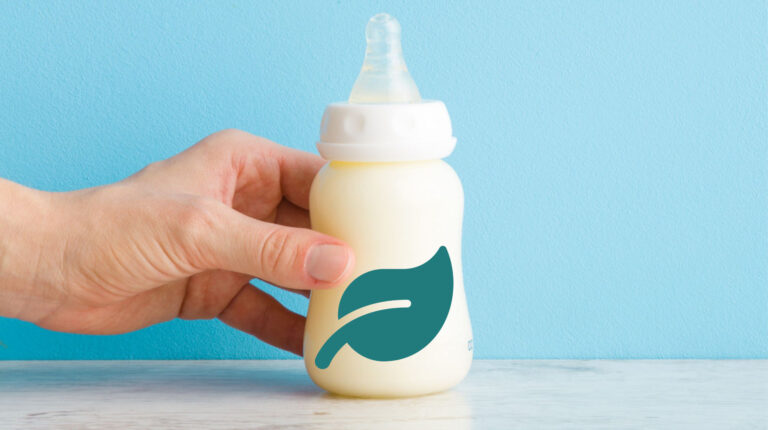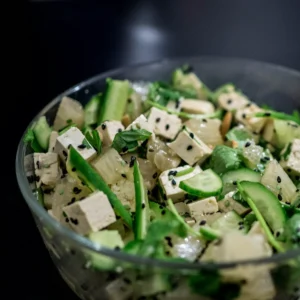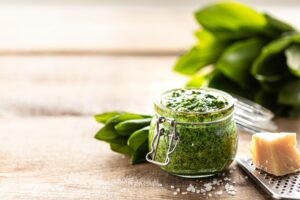Breastfeeding is the desired choice for many mothers. Not only is breast milk natural, but also incredibly healthy for your newborn. And, of course, breastfeeding your baby is a one-of-a-kind way to build a bond with your newborn.
Table of Contents
However, we should remember that breastfeeding is not always possible or simply not ideal for everyone. That is where baby formulas come into the picture. But if you’re a new mother and live a vegan lifestyle, you might wonder if you can raise your newborn on a vegan diet while feeding them formula. While there is an underwhelming amount of vegan-friendly baby formulas on the market, it is still possible to do. Read on to find out what you need to be aware of when it comes to vegan-friendly baby formulas.
Using vegan formula for babies
Vegan-friendly formulas for babies and toddlers are a relatively new thing on the market but slowly gaining more and more popularity.
While most vegan parents that intend to raise their kids on a vegan diet opt for breastfeeding, it is not always an available option for everyone. And when breastfeeding doesn’t work for whatever reason, it’s necessary to find the next best solution. For most people, that option is baby formula.
It’s good to know that vegan formulas are just as safe for babies as regular milk protein-based formulas are. They both have to meet the same nutrient profile that is needed to support the growth of a young human being. Sadly, finding a 100% vegan baby formula to feed a child is still quite a mission. There are limited vegan options on the market, and it can be tricky to get your hands on the few available ones.
Plant-based formula or vegan formula?
If you have found yourself in the baby formula section in a drugstore or supermarket, you might have noticed plenty of labels with phases such as dairy-free and plant-based. In that case, you might be confused about my statement about the limited amount of vegan-friendly baby formulas on the market. Let me explain.
Did you know that around 68% of the world population is lactose intolerant to some extent? Milk allergy is not uncommon among infants and toddlers, either. So, it is no wonder that there is a demand for lactose-free formulas out there for mothers who do not breastfeed.
Finding a lactose-free or dairy-free formula is pretty simple – most places that sell regular baby formulas have a few dairy-free options too. Sadly, those are not usually 100% plant-based and are not fit for babies raised on a vegan diet.
An ingredient found in almost every formula, dairy-based or not, is vitamin D3. This vitamin is necessary for healthy growth, helps us develop and maintain healthy bones and teeth, and is needed for our body to absorb calcium. The issue is that D3 comes from lanolin, a component derived from sheep’s wool. That makes it a no-go for vegans. Vitamin D2 is often used to replace D3 in vegan products.
So, keep in mind that cow’s milk is not the only thing making formulas non-vegan. Vitamin D3 is another important component to look out for when trying to find the perfect formula for your vegan baby.
Vegan baby formula – available options
While it is not mission impossible to find a suitable baby formula for vegan babies, the options out there are still limited. Vegan families often have to order their formulas internationally, as getting your hands on them in the United States can be tricky. In that case, it always works out cheaper to order in bulk. Since buying 100% plant-based formula is not as simple as going to your closest Target or drugstore and grabbing the first container, it is good to be aware of available options and where to get them. Here are some of the most popular formulas among vegan families.
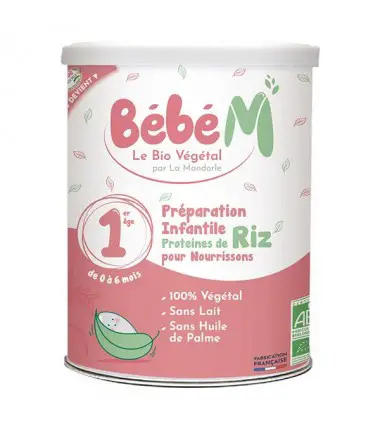
Bebe Mandorle Baby Formula – Bebe Mandorle offers vegan baby formulas for infants up to 36 months old babies. The formulas are free from animal-derived ingredients usually found in baby formulas – they are made from rice protein instead. The France-based company follows the highest European Organic standards and is a brilliant choice for plant-based families with little ones..
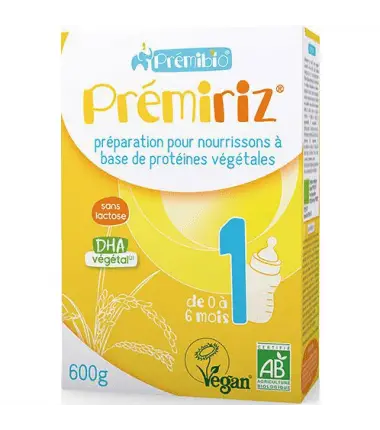
Premiriz Baby Formula. – Another French 100% plant-based formula, prepared from hydrolyzed rice protein. Premiriz offers their Stage 1 formula to 0-6 month-old babies, Stage 2 for 6-12 month-olds, and Stage 3 for babies 12-36 months.
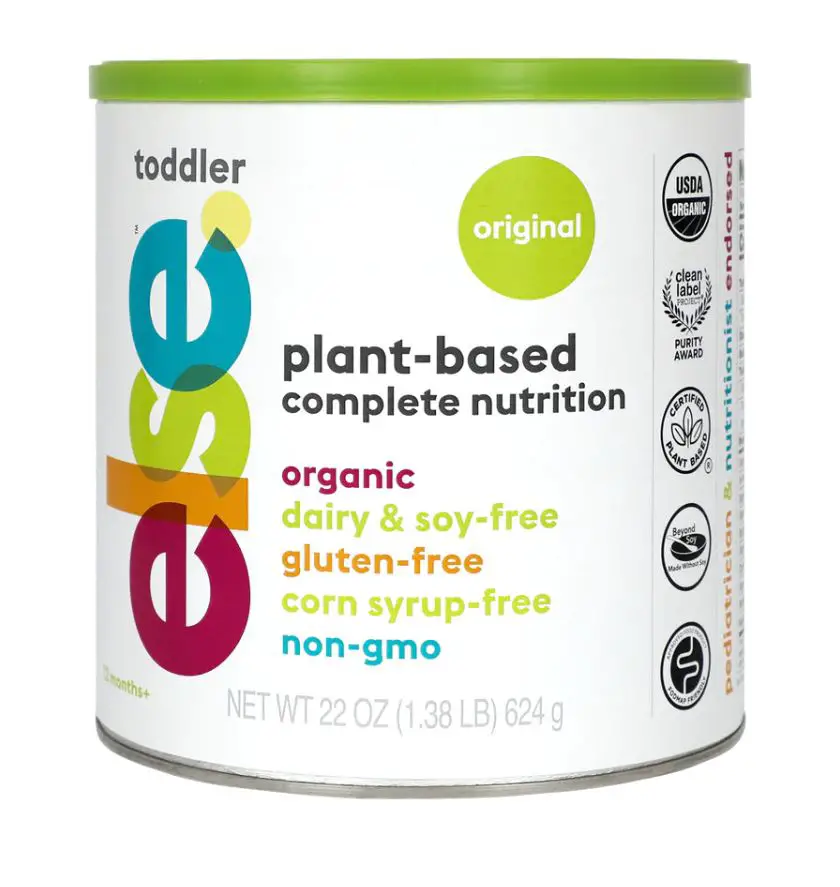
Else Nutrition Toddler Formula – Another great choice if your baby cannot drink a typical dairy-based formula for whatever reason. Not only is the formula dairy-free, but it is also free of gluten, soy, and GMOs. Certified organic and approved by FDA. Worth noting it’s only suitable for toddlers of 12 months and up. So if you need a vegan formula for your newborn, this one doesn’t match the nutrient needs of a young baby.
Vegan baby food
If you’re raising a plant-based baby and they are now old enough to be slowly introduced to solids, you might find yourself overwhelmed again. But I’m happy to say that finding vegan baby food is much easier than finding vegan-friendly baby formula.
There are endless options for baby cereals, such as Else Nutrition plant-powered cereals that come in different flavors. Mix them with breastmilk or your vegan baby formula – a happy baby is guaranteed. And, of course, baby purees are available at any supermarket – finding a vegan one is not difficult.
Once your little one is ready to move on from pureed and liquid foods, you can introduce them to fruits and veggies in raw or cooked form. It won’t be long until they’re enjoying the same plant-based meals that you are!
FAQ section
Is vegan baby formula safe?
Plant-based baby formulas are required to meet the same nutritious profile as dairy-based ones. So feeding a baby with vegan-friendly formula is generally safe. Always consult with your doctor beforehand to avoid any health risks.
How to make vegan baby formula?
Vegan baby formulas are made from plant-based proteins instead of milk or milk-based proteins. Soy is most commonly used to replace the use of dairy.
Is all baby formula vegan?
No, most baby formulas are based on dairy or contain D3 (not vegan) and, therefore, are not fit for vegans. However, there are several plant-based alternatives on the market nowadays. Most of the available vegan formulas are soy protein-based. Although, there are also other types of formulas on the market – from pea protein to rice protein.


